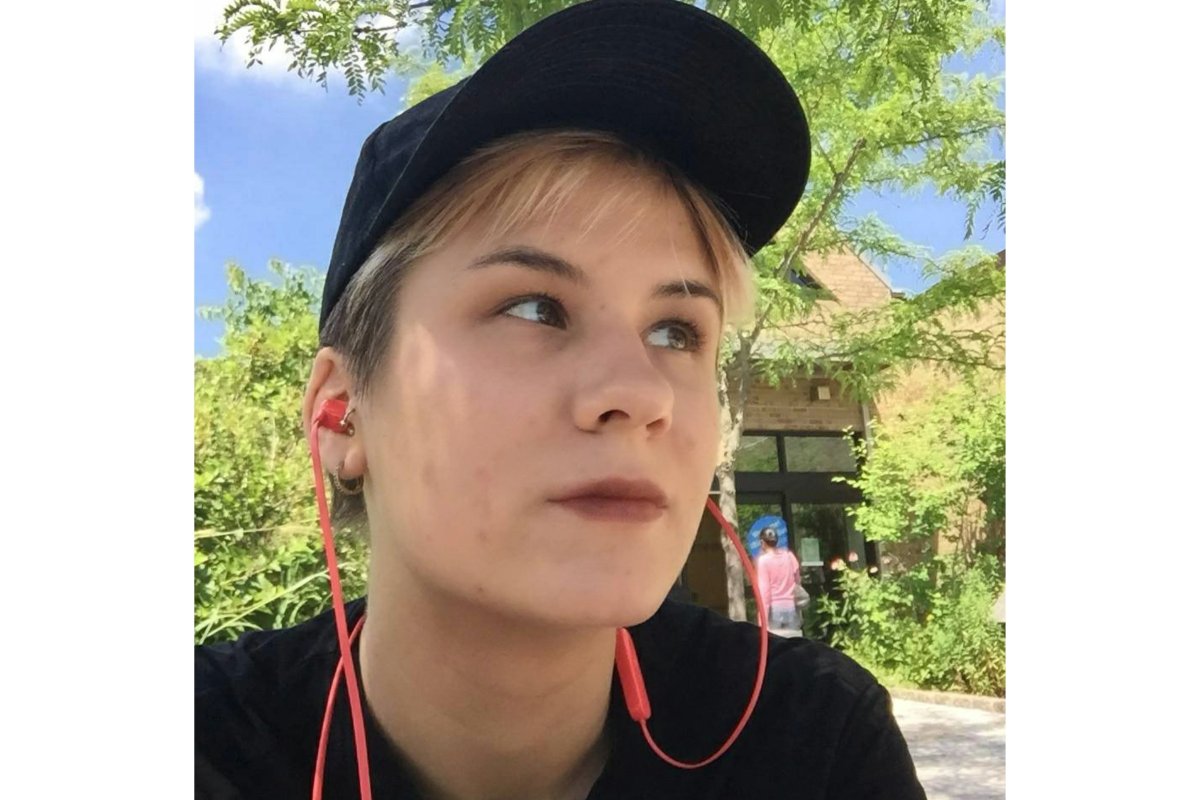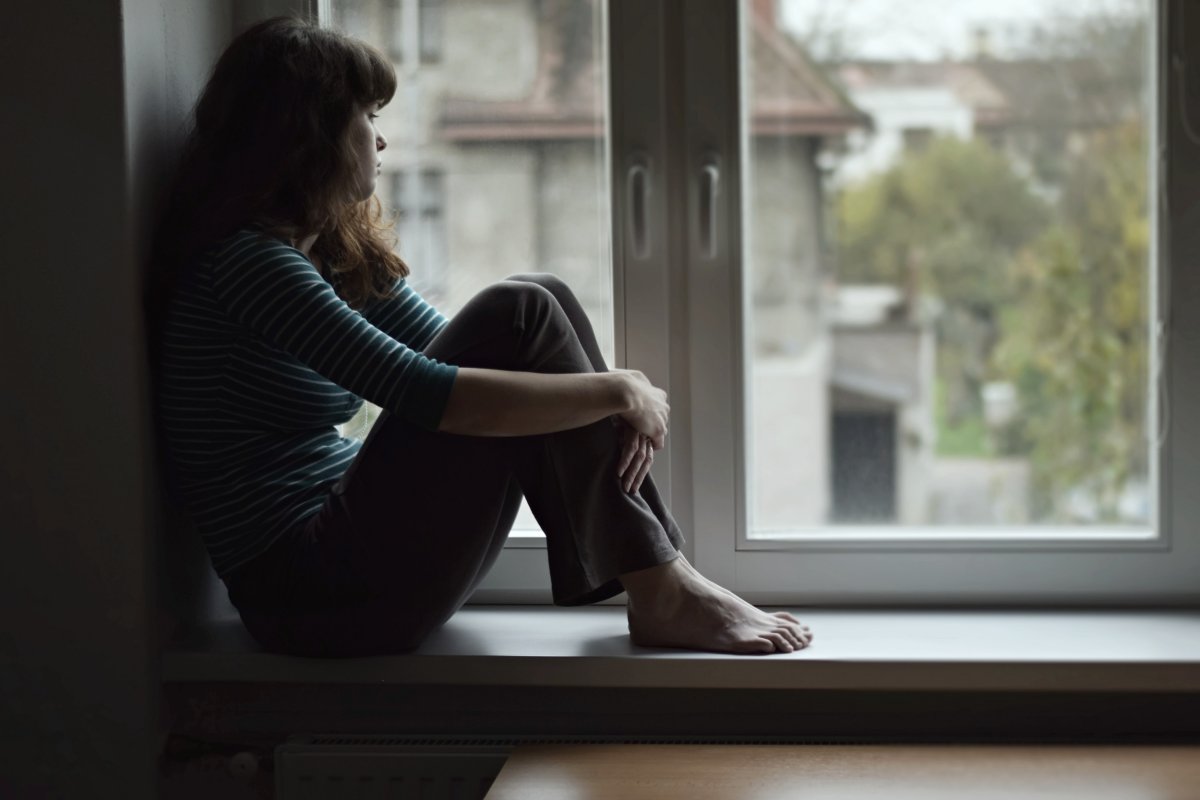The first words my father said to me on the morning of February 24 were, "It started." I had woken up because of the commotion my sister and dad were making as they were rushing out the door to withdraw cash from the ATM machine in my hometown of Dnipro, Ukraine. It was before dawn, not my usual wake-up time, but the moment I heard those first words, I was incredibly awake.
As usual, my dad was right. We were very lucky to get to the ATM when we did. Ukrainians who lived through our country divorcing the Soviet Union in the 1990s remembered that cash is more useful in the wallet than in the bank, and I saw what would soon become emblematic of the war for me—long lines of people.
My parents decided at the beginning of March that I needed to leave Ukraine as soon as possible, explaining their desire for me as their youngest child to finish college.
Unfortunately, I, the always forgetful daughter, left my passport in my college dorm room when I left for Spring Break. The campus sits in Kharkiv— the city transformed into a minefield and a heated battleground during the first hours of the war. The attacks on Kharkiv have damaged several of my university's buildings, and an explosion wave shattered the windows in my dormitory. At the moment, there are still no on-campus classes. The damage didn't look real, and it still doesn't feel real.

Determined to send me safely out of the country, my father braved the warzone to retrieve that little blue book on a harrowing six hour drive, delivering humanitarian aid and evacuating an elderly couple from the city during his journey.
On my journey to the U.S., the odd connections that various family members had across Europe astonished me; a cousin in Berlin, my dad's childhood friend in Munich, a close family friend that had left Ukraine a few days earlier. And, there were the kind strangers added to my support network as I navigated away from my country, alone. I suppose that explains why Ukrainians are so strong: We care for each other.
I felt that care when my family took turns standing in a seven-hour line so I could catch a train to Lviv—the city many Ukrainians traveled through to exit the country. I felt it when two other young girls I met in line for a train suggested we travel as a pack to Munich to stay safe. I also felt it when volunteers gave hot soup and bread to people standing in the cold. And when I crossed the Ukrainian border, I felt that care for everyone in my train car, each connected by our shared stress and shock but determined to carry on without complaining.

Of course, the tired refugees, carrying backpacks, pets, and crying children, were irritated and anxious. Several arguments erupted during yet another long line on the Polish border. But everyone made little sacrifices to maintain peace amongst chaos. I remain amazed. My traveling companion soothed a stranger's baby, so the mother could rest.
Another woman on the bus entrusted me to watch her two-year-old sleeping son. Countless acts of kindness, patience, and moments of community were experienced and conducted by Ukrainians on this journey together.
I reached Munich 72 hours after I left my home. For three days, I caught my breath and prepared for the final stretch of the trip to the U.S., to meet my uncle's family. I was lucky, as I had my tourist visa made two years ago to visit my uncle, a plan that COVID-19 disrupted.
My father's friend secured a scarce hotel room in the city for me. Stepping into the shower for the first time in three days felt like heaven. In that quiet room, I finally had some time to pause, acknowledge, and contemplate the major changes happening in my life. It felt like looking into a black void filled with fears and uncertainty, and I could scarcely think about my future.
Despite the stress, any amount of time spent waiting in lines, sitting in trains, and resting in the refugee center was worth it, knowing that my parents would be greatly comforted once I was safe across the ocean.
My aunt, uncle, and cousin had generously invited our entire family to live with them in the U.S. as soon as the war started. I lived with them in the spring and summer of 2022, waking up every day grateful but worried about my family that stayed behind.
Now, six months later, I just want to be with them. I'm anxious every time I see a notification about an air-raid siren in Dnipro, which happens several times a day.
I experience endless, frightening news updates and survivor's guilt. The burning panic cooled when I arrived in America, but my guilt and doom scrolling remain. I wonder if I'll still feel guilty when the war is over, or if I'll ever be able to watch the news again without anxiety.
My family and friends are still living in constant danger, trying to lead "normal" lives as the country struggles to survive. I can only hope that someday, I will see them again in a free, united Ukraine.
I am grateful for the life I am beginning in the U.S. and I was fortunate to have my transfer application accepted to attend the University of Maryland, Baltimore County, where I hope to finish my journalism degree.
The war created an abyss that separates my past and present; the life I left behind will never exist again. Still, I am building bridges, talking to my family every day, and setting up a new life here. Even though the fight is not over, I allow myself to be hopeful and move forward because that is the only choice my fellow Ukrainians and I have left.
Anna Mishonova is a 21-year-old refugee from Dnipro, Ukraine, currently studying journalism at the University of Maryland.
All views expressed in this article are the author's own.
Uncommon Knowledge
Newsweek is committed to challenging conventional wisdom and finding connections in the search for common ground.
Newsweek is committed to challenging conventional wisdom and finding connections in the search for common ground.
About the writer
To read how Newsweek uses AI as a newsroom tool, Click here.








